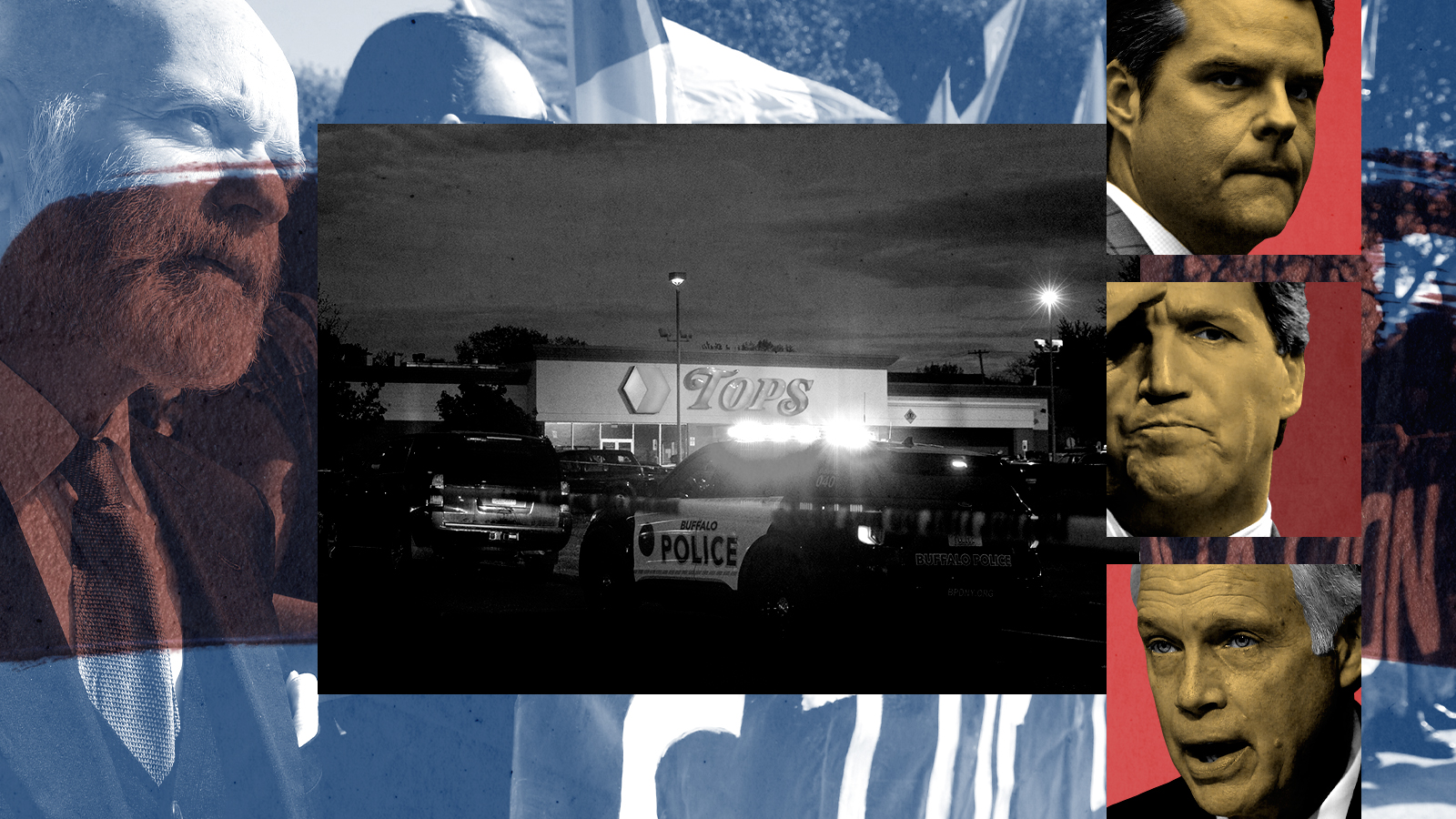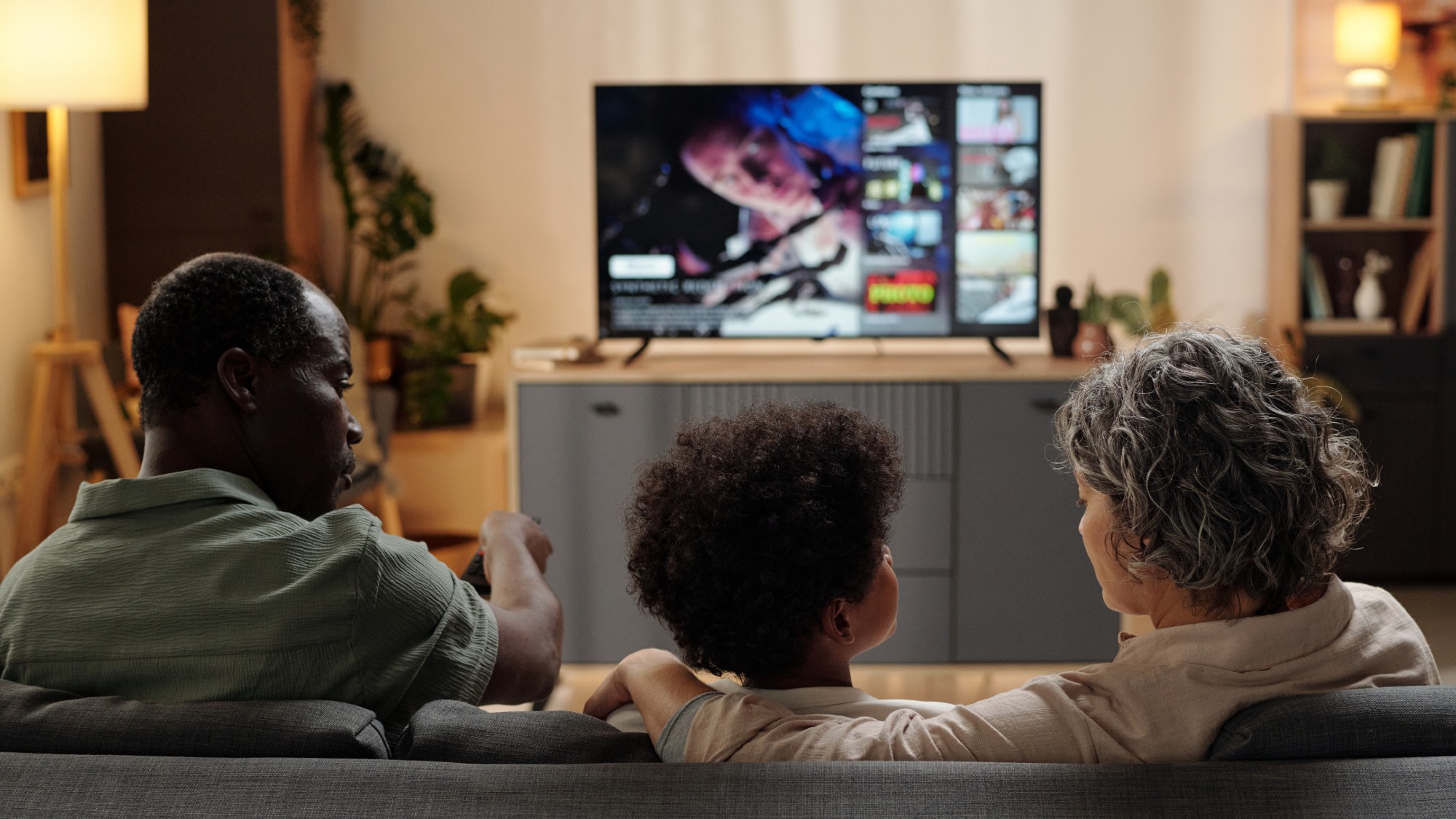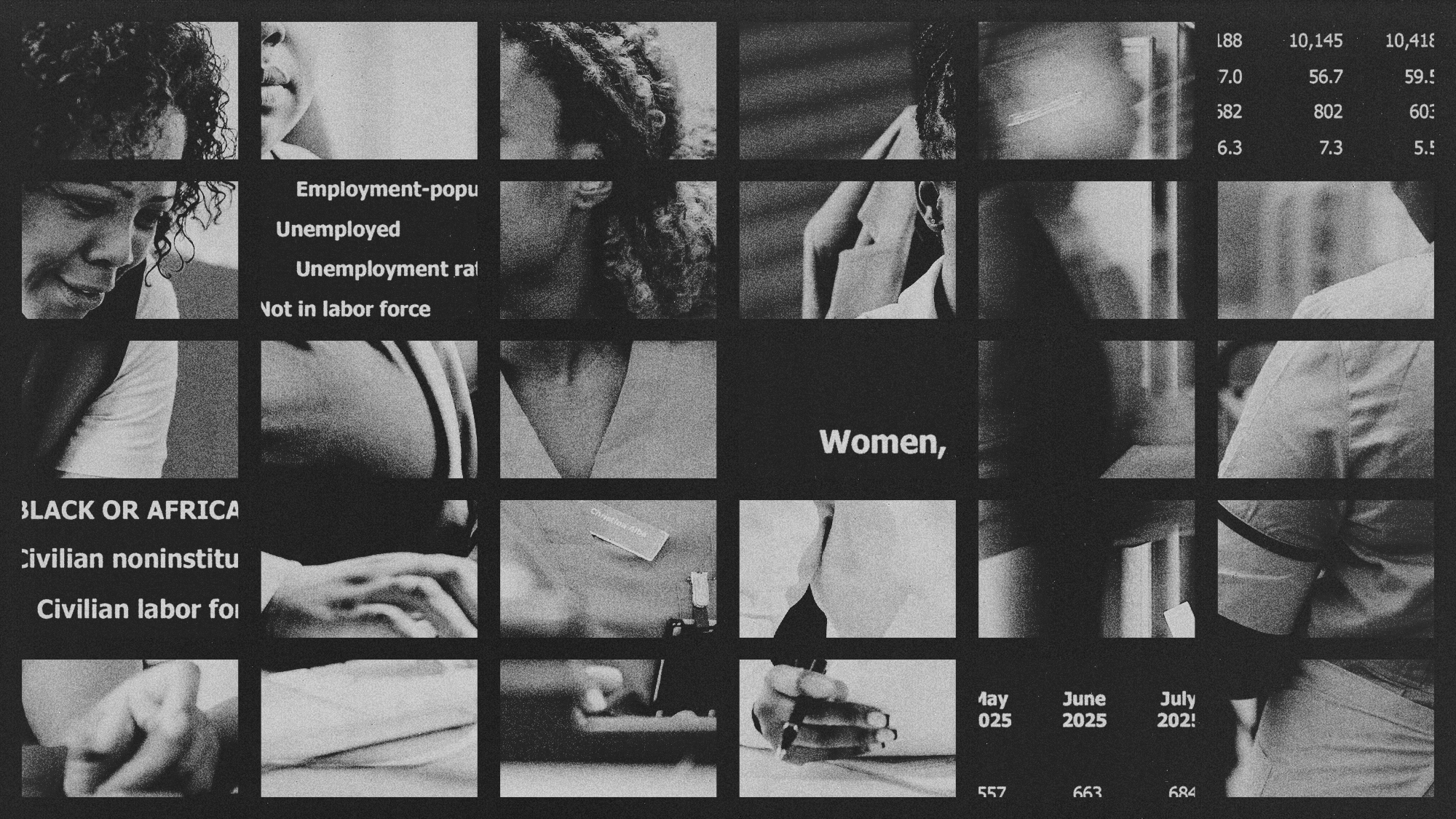'Great Replacement Theory,' explained
How a racist conspiracy theory inspired the Buffalo shooter


A free daily email with the biggest news stories of the day – and the best features from TheWeek.com
You are now subscribed
Your newsletter sign-up was successful
Buffalo is reeling from the nation's latest gun massacre — 10 people were killed Saturday at a Tops grocery store in one of the city's predominantly Black neighborhoods, by a white 18-year-old gunman who had a racial slur written on his rifle, and who days earlier had posted a white supremacist manifesto in which he decried "the complete racial and cultural replacement of the European people" by minorities.
The slaughter has drawn attention to the "Great Replacement Theory," an idea once confined to racist fringe movements, but which has gone more broadly mainstream in recent years. "Certainly, there was no mistaking the racist intent of the shooter," writes David Bauder at The Associated Press. "Simply put, the conspiracy theory says there's a plot to diminish the influence of white people."
How did the theory inspire the gunman — and how widespread is it among American conservatives?
The Week
Escape your echo chamber. Get the facts behind the news, plus analysis from multiple perspectives.

Sign up for The Week's Free Newsletters
From our morning news briefing to a weekly Good News Newsletter, get the best of The Week delivered directly to your inbox.
From our morning news briefing to a weekly Good News Newsletter, get the best of The Week delivered directly to your inbox.
What is 'Great Replacement Theory'?
"The idea is simply that many different kinds of social change are connected to a plot by a cabal of elites to eradicate the white race, which people in this movement believe is their nation," said Kathleen Belew, an assistant professor of history at the University of Chicago, in an interview with the New Yorker's Isaac Chotiner. But it can take different forms: "Sometimes it's about the United Nations as the elites trying to wage this war on the white birth rate. Sometimes it's about global outsiders. But there is a heavy current of antisemitism that links the idea of the manipulative elite with Jewish conspirators."
"The theory often uses martial and violent rhetoric of a migrant 'invasion' that must be stopped before it 'conquers' 'white America,'" the National Immigration Forum adds. It's an apocalyptic vision that fills its adherents with fear. "Regardless of which version is referenced, proponents of the 'great replacement' theory almost always paint a life-or-death scenario concerning the fate of 'white America.' The theory contends that nonwhite immigration must be stopped, or else the country is on … a 'suicidal' path."
Where did it come from?
"'The Great Replacement' theory has its roots in early 20th century French nationalism," but "it was French writer and critic Renaud Camus who popularized the phrase for today's audiences when he published an essay titled 'Le Grand Remplacement,' or 'the great replacement,' in 2011," ADL says in its briefing on the topic. "Camus believes that native white Europeans are being replaced in their countries by non-white immigrants from Africa and the Middle East, and the end result will be the extinction of the white race."
Camus' ideas spread — often violently — across the oceans to other countries. "His conspiracy theories have been translated on far-right forums and turned into catchphrases deployed by extremists," Isaac Stanley-Becker and Drew Harwell write in The Washington Post. And those ideas "have left a trail of destruction stretching from Norway, where Anders Behring Breivik killed 77 people, including 69 at a summer camp, on a single day in 2011, to Christchurch, New Zealand, where Brenton H. Tarrant killed 51 at a pair of mosques in 2019. Both men promoted their ideology in hate-filled writings that railed against immigration and argued that violence was necessary to preserve Western civilization."
A free daily email with the biggest news stories of the day – and the best features from TheWeek.com
Did replacement theory inspire the Buffalo shooter, too?
Yes. "The manifesto includes dozens of pages [of] antisemitic and racist memes, repeatedly citing the racist 'great replacement' conspiracy theory frequently pushed by white supremacists," Ben Collins reports at NBC News. "Other memes [in the manifesto] use tropes and discredited data to denigrate the intelligence of nonwhite people."
Is this Tucker Carlson's fault?
Not directly. The shooter "insists that his views weren't influenced by his parents, friends, or anyone else in his life. Instead, he writes, it started when he was 16 and pandemic boredom drove him into the darker corners of the web," Nicholas Confessore and Karen Yourish write in the New York Times. He aped the Christchurch killer's manifesto by "copying some of the phrasing word for word" and "points to posts on 4chan and other sites that cater to white supremacists as connecting him with the hate-filled theories."
But Carlson was under scrutiny even before the shooting because his Fox News show often embraces replacement theorizing. "In more than 400 episodes … he has amplified the idea that a cabal of elites want to force demographic change through immigration," Confessore wrote for the New York Times in April. Carlson hasn't shied away from the charge. "So I know that the left and all the little gatekeepers on Twitter become literally hysterical if you use the term 'replacement', if you suggest the Democratic Party is trying to replace the current electorate, the voters now casting ballots, with new people, more obedient voters from the third world," he said on his show last year. "But they become hysterical because that's what's happening actually. Let's just say it. That's true."
Is anybody else embracing the theory?
The idea appears to have "taken root on the American right," Max Boot says in The Washington Post. In addition to mentions by Fox News hosts, "a number of Republican politicians, including Rep. Matt Gaetz (Fla.), Rep. Scott Perry (Pa.) and Sen. Ron Johnson (Wis.), have openly espoused the 'great replacement' theory too." So too, for that matter, have Republican senatorial candidates Blake Masters and J.D. Vance. Rep. Elise Stefanik (R-N.Y.), the No. 3 House Republican, has also promoted the replacement ideology. "Little wonder that a poll taken in December found that nearly half of all Republicans believe that there is a plot to "replace" native-born Americans with immigrants."
At least one conservative is pushing back. "The House GOP leadership has enabled white nationalism, white supremacy, and antisemitism. History has taught us that what begins with words ends in far worse," Rep. Liz Cheney (R-Wyo.) wrote Monday on Twitter. Republican leaders "must renounce and reject these views and those who hold them."
Joel Mathis is a writer with 30 years of newspaper and online journalism experience. His work also regularly appears in National Geographic and The Kansas City Star. His awards include best online commentary at the Online News Association and (twice) at the City and Regional Magazine Association.
-
 6 of the world’s most accessible destinations
6 of the world’s most accessible destinationsThe Week Recommends Experience all of Berlin, Singapore and Sydney
-
 How the FCC’s ‘equal time’ rule works
How the FCC’s ‘equal time’ rule worksIn the Spotlight The law is at the heart of the Colbert-CBS conflict
-
 What is the endgame in the DHS shutdown?
What is the endgame in the DHS shutdown?Today’s Big Question Democrats want to rein in ICE’s immigration crackdown
-
 ‘The West needs people’
‘The West needs people’Instant Opinion Opinion, comment and editorials of the day
-
 The billionaires’ wealth tax: a catastrophe for California?
The billionaires’ wealth tax: a catastrophe for California?Talking Point Peter Thiel and Larry Page preparing to change state residency
-
 Bari Weiss’ ‘60 Minutes’ scandal is about more than one report
Bari Weiss’ ‘60 Minutes’ scandal is about more than one reportIN THE SPOTLIGHT By blocking an approved segment on a controversial prison holding US deportees in El Salvador, the editor-in-chief of CBS News has become the main story
-
 Has Zohran Mamdani shown the Democrats how to win again?
Has Zohran Mamdani shown the Democrats how to win again?Today’s Big Question New York City mayoral election touted as victory for left-wing populists but moderate centrist wins elsewhere present more complex path for Democratic Party
-
 Should TV adverts reflect the nation?
Should TV adverts reflect the nation?Talking Point Reform MP Sarah Pochin’s controversial comments on black and Asian actors in adverts expose a real divide on race and representation
-
 Millions turn out for anti-Trump ‘No Kings’ rallies
Millions turn out for anti-Trump ‘No Kings’ ralliesSpeed Read An estimated 7 million people participated, 2 million more than at the first ‘No Kings’ protest in June
-
 Black women are being pushed out of the workforce en masse
Black women are being pushed out of the workforce en masseIN THE SPOTLIGHT Employment data shows hundreds of thousands of Black women have left the labor market over the past few months. What's behind this mass exodus?
-
 Ghislaine Maxwell: angling for a Trump pardon
Ghislaine Maxwell: angling for a Trump pardonTalking Point Convicted sex trafficker's testimony could shed new light on president's links to Jeffrey Epstein
